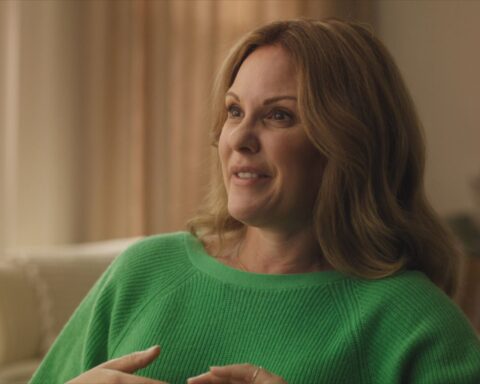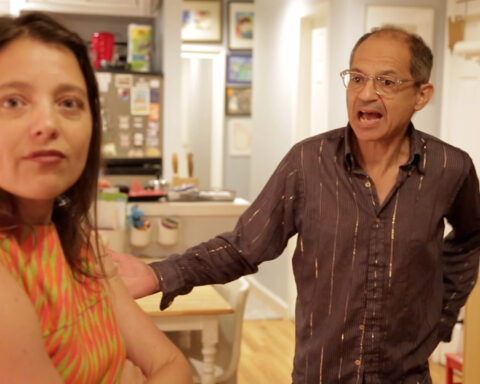Captivated: The Trials of Pamela Smart
USA/UK, 102 min.
Directed by Jeremiah Zagar
Programme: Special Presentations (International Premiere)
Doc after doc fixates on the power of the media to shape reality, one probable reason being that the media fascinates people who make documentaries. In the case of Captivated: The Trials of Pamela Smart, Jeremiah Zagar zooms in on the 1990 case of Pamela Smart, the 22-year-old New Hampshire schoolteacher who got fed up with her marriage, lavished her libido on a 15-year-old boy, and according to police and prosecution, manipulated her lover and his teenage friends into murdering her husband. Smart’s trial was the first ever to be televised, and the story immediately got spun into a TV movie starring Helen Hunt. Four years later, Gus Van Sant adapted Joyce Maynard’s novel To Die For into one of his best pictures with Nicole Kidman as the character inspired by Smart’s shenanigans.
In Captivated, Zagar deploys an arsenal of media coverage of the scandal and interviews with key figures, including Smart herself, to argue that the outcome of the trial was predetermined by one of the oldest narratives in the world. For the judge and most of the jury, Pamela Smart was Eve seducing an innocent boy into biting from the forbidden fruit. Local and national media portrayed her as an ubertramp capable of luring her dupes into committing murder, which reinforced this vision of her. Incredibly, the judge carelessly allowed the jury to return home every night during the trial, knowing that they’d probably be exposed to lurid images of Smart looking hot in bras and panties.
Ironically, Smart was a media-savvy wannabe television presenter, who according to a TV reporter tried to direct an interview he did with her. Reactions to the case by participants was extraordinarily revealing: the same reporter played himself in the TV movie; the judge was sure that he should be played by Clint Eastwood; a cop Zagar interviewed called for a second take “with more emotion,” and one of the killers bragged that he faked tears during his testimony. Today, the participants’ memories of the case confuse reality with TV coverage and the two film versions of the story.
In other words, all the real-life players in the Pamela Smart case were captivated by its transformation into the television’s first shot at reality programming. And this smart, compelling, at times witty doc that expertly collages material from many sources clearly states that the ongoing show made it impossible for Smart to be treated fairly, whether or not she was guilty. The teenage boys made deals with the prosecutors, and all of them will be out of prison within a few years. Pamela Smart was sentenced to life without parole, a sentence she’s still fighting.











